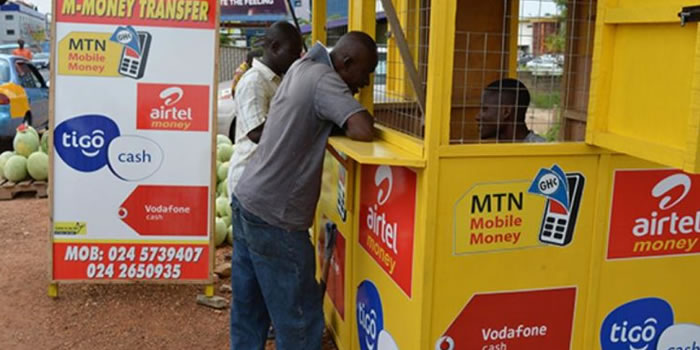Adverts
GENERAL
Residents of Nabdam schooled on mobile money scams, misinformation
The emerging nature of the media space, aided by the advancement of technology and an extensive improvement of networks by telecommunications industries in various regions, is contributing to mobile money fraud and misinformation.

Date Created : 3/21/2024 12:00:00 AM : Story Author : Gilbert Azeem Tiroog/Ghanadistricts.com
The impact of these on individuals, electoral bodies, health governing bodies, and countries has been well established, with non-literates being the most vulnerable.
Madam Rita Kologmah Yenborah, a non-literate mother of two said the mobile money fraud had taken a toll on her life, rendering her unemployed, and she was struggling to cater for her children.
“My daughter, who was in Senior High School, had called to inform me that she wasn’t feeling well, and so I promised to send her money in the evening. A few minutes later, a call came through, and I was told my daughter was rushed to the hospital and they were demanding GH¢2,000.00,” she narrated.
“With what she told me earlier, I was convinced by the numerous calls in demand of the money, and the fact that I could not reach her again even got me more worried. I had GH¢1,500.00, which was all for my small business, and I borrowed GH¢500 in addition, only for it to turn out not to be true after sending the money.”
The story of Yenborah is not an isolated case, as many have lost thousands of cedis through mobile money scams.
It is against this background that Mr. Charles Bugre, a PhD candidate of the Washington Information School, United States of America, has engaged selected non-literates on mobile money fraud and digital misinformation at the Logre Community in the Nabdam District of the Upper East Region.
The two-day engagement formed part of his research work, titled: “Examining illiteracy and misinformation in Africa.”
It is aimed at providing a deeper understanding of how people with no or low literacy detect and respond to misinformation while offering evidence on whether illiteracy, the inability to read or write in any language, makes individuals more susceptible to misinformation or not.
The research also focused on providing evidence on how people with no or low levels of literacy assess the trustworthiness of information and who their key influencers are, while contributing to the scarcity of research on strategies to curb misinformation for this category of people.
This, among other objectives, he said, was to identify educational intervention guidelines suggested by the targeted population for inclusive digital literacy and improve their skill to respond to misinformation messages in ways that would not be detrimental to themselves or the larger society.
While exposing the participants to manipulated images, videos, out-of-context information, and mobile money scams, which they identified as their biggest threat, with some of them being victims, Mr.?Bugre urged them to be guarded and cautious about the information they consumed, as all of it was not true.
Mr. Abongo Atanga, a participant, said the workshop had exposed him to many issues he was not aware of and going forward, he would be guided by what he had learned.
“Day in and day out, we are being scammed, and that is because these scammers are using different strategies to dupe us, but with this engagement, my eyes have now been opened to a lot of things,” he said.
“And I want to thank Charles for this lifesaving gesture because we have lost a lot through these scams and the anxiety is always too much to bear."
Madam Cynthia Naya, another participant, noted that though she knew about photoshop, she was fascinated to learn that videos could be doctored to look as though they were real.
“The education on MoMo scams really stood out for me, and now I don’t think they can easily lure me with their tactics again.”


 facebook
facebook X (twitter)
X (twitter) Youtube
Youtube +233 593 831 280
+233 593 831 280 0800 430 430
0800 430 430 GPS: GE-231-4383
GPS: GE-231-4383 info@ghanadistricts.com
info@ghanadistricts.com Box GP1044, Accra, Ghana
Box GP1044, Accra, Ghana